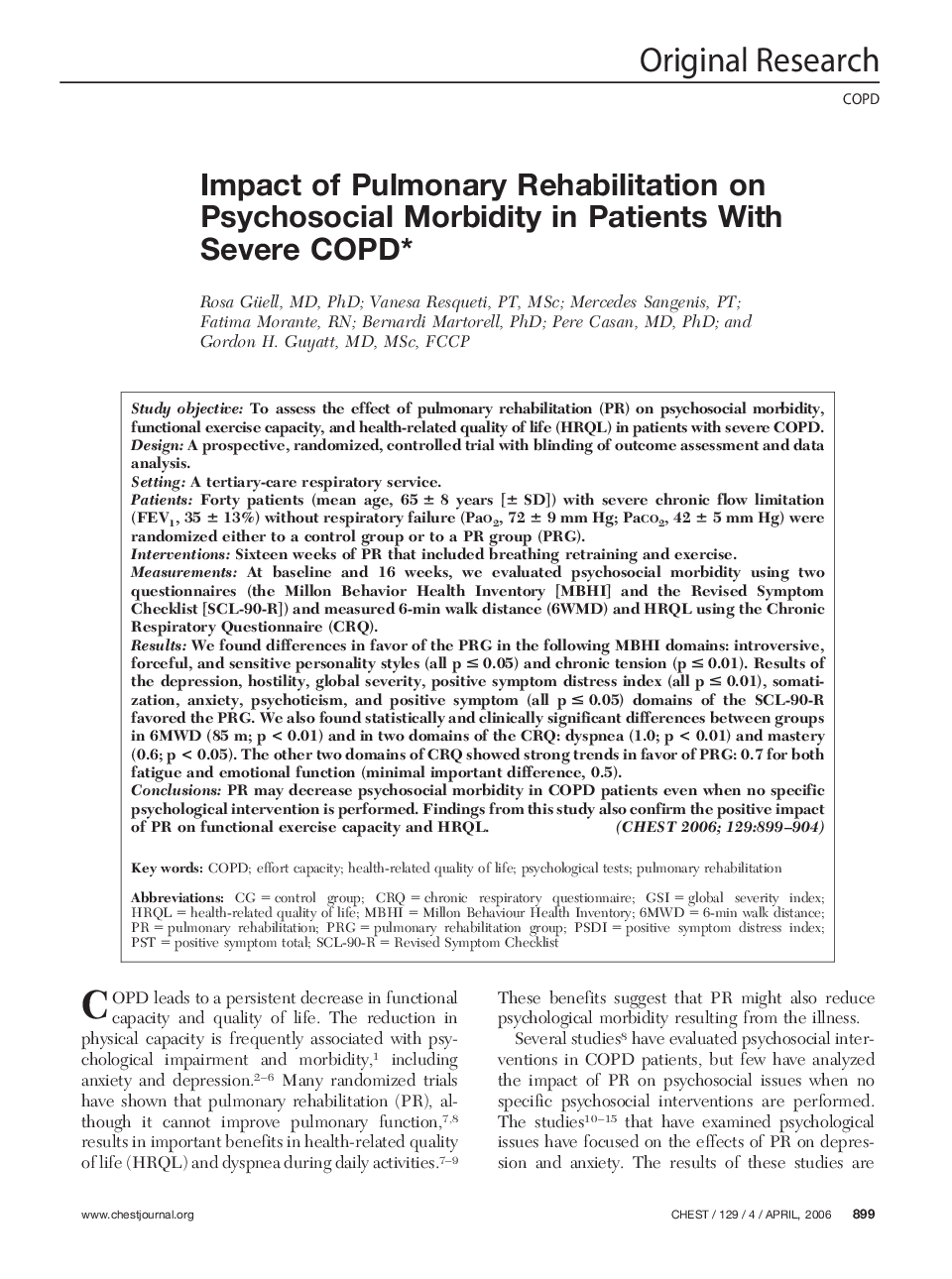| کد مقاله | کد نشریه | سال انتشار | مقاله انگلیسی | نسخه تمام متن |
|---|---|---|---|---|
| 2905584 | 1173431 | 2006 | 6 صفحه PDF | دانلود رایگان |

Study objectiveTo assess the effect of pulmonary rehabilitation (PR) on psychosocial morbidity, functional exercise capacity, and health-related quality of life (HRQL) in patients with severe COPD.DesignA prospective, randomized, controlled trial with blinding of outcome assessment and data analysis.SettingA tertiary-care respiratory service.PatientsForty patients (mean age, 65 ± 8 years [± SD]) with severe chronic flow limitation (FEV1, 35 ± 13%) without respiratory failure (Pao2, 72 ± 9 mm Hg; Paco2, 42 ± 5 mm Hg) were randomized either to a control group or to a PR group (PRG).InterventionsSixteen weeks of PR that included breathing retraining and exercise.MeasurementsAt baseline and 16 weeks, we evaluated psychosocial morbidity using two questionnaires (the Millon Behavior Health Inventory [MBHI] and the Revised Symptom Checklist [SCL-90-R]) and measured 6-min walk distance (6WMD) and HRQL using the Chronic Respiratory Questionnaire (CRQ).ResultsWe found differences in favor of the PRG in the following MBHI domains: introversive, forceful, and sensitive personality styles (all p ≤ 0.05) and chronic tension (p ≤ 0.01). Results of the depression, hostility, global severity, positive symptom distress index (all p ≤ 0.01), somatization, anxiety, psychoticism, and positive symptom (all p ≤ 0.05) domains of the SCL-90-R favored the PRG. We also found statistically and clinically significant differences between groups in 6MWD (85 m; p < 0.01) and in two domains of the CRQ: dyspnea (1.0; p < 0.01) and mastery (0.6; p < 0.05). The other two domains of CRQ showed strong trends in favor of PRG: 0.7 for both fatigue and emotional function (minimal important difference, 0.5).ConclusionsPR may decrease psychosocial morbidity in COPD patients even when no specific psychological intervention is performed. Findings from this study also confirm the positive impact of PR on functional exercise capacity and HRQL.
Journal: Chest - Volume 129, Issue 4, April 2006, Pages 899–904